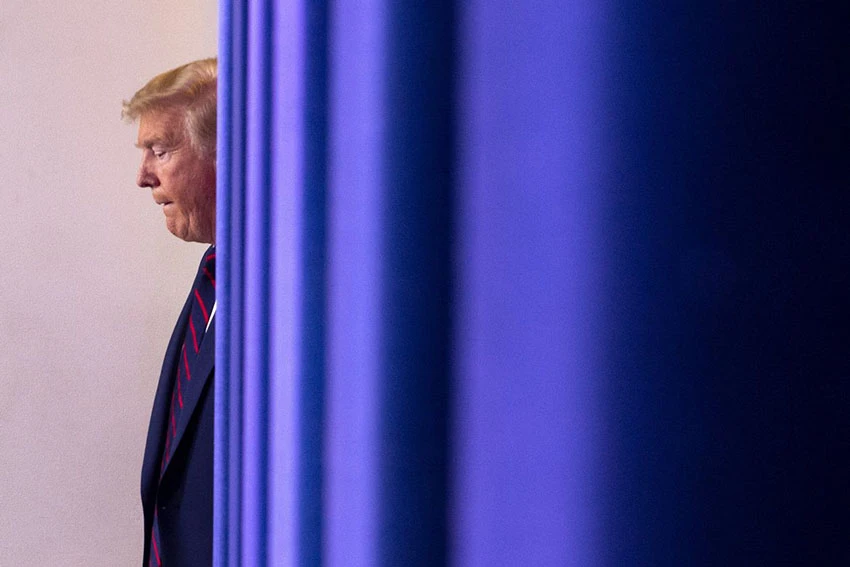
A large group of prominent American foreign-policy experts, including former high-ranking White House officials from both parties, is calling on the Trump administration to work more closely with China to stem the coronavirus epidemic.
Susan Rice and Stephen Hadley, national security advisers under Presidents Obama and George W. Bush respectively, were among the nearly 100 boldface names who signed the statement, which comes as the U.S. and China trade blame over the Covid-19 crisis.
“No effort against the coronavirus—whether to save American lives at home or combat the disease abroad—will be successful without some degree of cooperation between the United States and China,” read the statement, which was released Friday.
The statement criticized China’s government for initially resisting cooperation with the U.S., and for covering up the threat of the coronavirus and resisting efforts at transparency, but also said a full accounting of policy failures should be left for another time.
“For now, as the pandemic sweeps the globe, the focus should be on finding the resolve to work together,” read the statement, which was published a day after the number of coronavirus infections topped 1 million world-wide.
Among the more than 90 prominent figures from U.S. security, diplomatic, business and academic circles were Republican signatories like Michael Chertoff, who served as secretary of homeland security in the George W. Bush White House, and Mike Leavitt, Mr. Bush’s secretary of health and human services.
The high-ranking officials from Democratic administrations included Madeleine Albright, President Clinton’s secretary of state, and Chuck Hagel, secretary of defense under President Obama.
The statement followed an open letter from 100 Chinese scholars and addressed to the people of the U.S. that made a similar call for the two countries to put aside differences and join forces against the pandemic.
“Respecting science, cherishing life, and protecting people from harm should be our shared goals in the fight against Covid-19,” said the letter, dated March 26 and published Thursday in the Diplomat magazine. “We look forward to the time when doctrines of international cooperation once again flourish around the world.”
The pandemic, which first emerged late last year in the central Chinese city of Wuhan, has further aggravated U.S.-China ties that had already been rubbed raw by a two-year trade war and increasing rivalry over technology. Mr. Trump and his top officials have blamed China’s Communist Party for letting the coronavirus spread out of control, while Beijing’s leaders have accused the U.S. government of trying to distract from its own failures.
Meanwhile, top Chinese diplomats and state media have fueled fringe theories circulating online that the virus might actually have originated in the U.S.
With the U.S. struggling to contain the pathogen at home, China’s government has staked a claim to global leadership, touting donations of masks and medical expertise in Europe and elsewhere.
At other times, Chinese diplomats have faulted Western countries for failing to help others, despite the U.S. and EU having shipped 30 tons of medical supplies to China in the early days of the outbreak.
Both sides have toned down the barbs since Mr. Trump called Chinese President Xi Jinping to discuss the pandemic last week.
Friday’s statement, which was spearheaded by the Asia Society’s Center on U.S.-China Relations and the 21st Century China Center at the University of California, San Diego, urges the U.S. to share data, coordinate the production of medical supplies and develop a vaccine with China.
Even during the Cold War, the statement said, the U.S. and Soviet Union worked to vaccinate the public against smallpox, offering a precedent for cooperation on public health problems.
“The motivation is saving American lives, that’s the whole point,” Mr. Hadley said. “There are some areas where it’s still in the best interests of both countries and of the world as a whole to have the United States and China cooperating, and I think even the most hawkish Republicans would agree with that.”
Orville Schell, director of the Asia Society’s Center on U.S.-China Relations, helped solicit the signatures. He said pulling together the bipartisan group was a challenge given the political rancor in the U.S. That it came together at all reflects the severity of the pandemic, he said.
“We looked at what was happening in New York. It was turning into Wuhan, basically,” Mr. Schell said.
Others who signed the statement include Harvard University political scientist Joseph Nye, who coined the phrase “soft power,” and Robert Work, a former deputy defense secretary under both Messrs. Obama and Trump, who has criticized U.S. technology companies for working with China’s military.
Dan Coats, President Trump’s former director of national intelligence, had agreed to sign an early draft of the statement but later asked for his name to be removed, according to Mr. Schell.
More than 53,000 people have died from Covid-19 world-wide, and the number of deaths in the U.S. topped 1,000 in a single day for the first time on Thursday.
Even with strong control measures, public health experts project global deaths from the disease will reach into the millions.




















